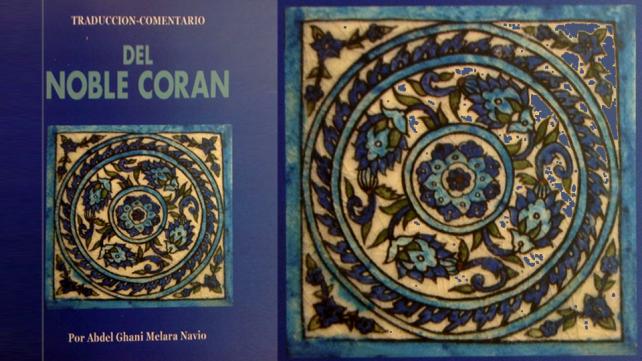
The Qur’an in Spanish: Three Reviews
By Alejandro Hamed
It used to be really difficult to find an English translation of the Qur’an. That has now changed, as various translators and publishers work to regularly improve the quality of their translations of the Book of Allah.
Today, Spanish translations of the Qur’an are where English ones once were. They are few and far between. However, with the growing number of Spanish-speaking Muslims, mostly converts to Islam, this situation is changing.
Br Alejandro Hamed is one of such Spanish-speaking Muslims. He has reviewed three current translations of the Qur’an in Spanish. Here are his thoughts.
I have obtained the following three translations of the Qur’an in Spanish: the revised third edition of 'El Noble Coran' (Darussalam, Riyadh, December 1997), the Spanish translation of the Qur’an by Abdel Ghani Melara Navio (a Spaniard who converted to Islam in 1979) and the third US edition of "El Coran" (Tahrike Tarsile Qur’an, New York, 1992), the Spanish translation of the Qur’an by the Spaniard Julio Cortes.
For many years, I have had a copy of "El Sagrado Coran" (El Nilo, Buenos Aires, Argentina, 1953). This is a translation by two Muslims of Argentinean background, Ahmed Abboud and Rafael Castellanos.
I have compared a number of the verses of the Qur’an as given by these three different translations.
Before I give you some of my impressions, let me quote a couple of other opinions.
Thomas Irving, in his introduction to Julio Cortes' edition writes: '...Another translation has been published in Argentina, which has not reached my hands. The translator is a Muslim.......Up to now, the best version is that by the Spaniard Julio Cortes....'.
I presume that the other translation Irving is referring to is the one by Abboud and Castellanos.
Muslim-American author and educator Yahiya Emerick, in the chapter Hispanic-Americans of his book 'How to tell others about Islam' writes: 'The most widely available (Spanish translation) is that of Julio Cortes, although many native speakers dislike the style Cortes used. The translation of Rafael Castellanos, El Sagrado Coran, is more appealing.'
Here are my impressions.
Aboud and Castellanos' translation
This translation is far superior in style, elegance, and eloquence to the other two.
It takes more liberties in constructing sentences in Spanish, but it remains true to the meaning of the Arabic original (to the extent possible, of course). This translation is often easier to read and grasp than the other two.
The Aboud and Castellanos translation is preceded by a brief biography of the Prophet Muhammad (peace and blessings be upon him), a list of short Hadiths, and an account of the great spiritual and material advances that humanity owes to the Qur’an.
This translation does not contain an analytical index.
Abdel Ghani Melara's translation
This is an acceptable translation. The somewhat plain Spanish he uses lacks the force and eloquence of the version by Abboud and Castellanos, and it is sometimes less clear.
On the other hand, I believe it tries to remain closer to the original Arabic text on a word-by-word basis.
It provides commentaries to some verses of the Qur’an. However, the commentaries are brief and few in number.
Melara's translation contains a glossary but no analytical index.
It is readily available in different sizes and in Spanish-only or in a Spanish-Arabic version.
Julio Cortes' translation
You can add me to the list of native Spanish speakers that dislike this translation.
The choice of words, the construction of the sentences, the rhythm of the text, they all leave much to be desired.
However, it does contain a glossary and an analytical index.
https://www.soundvision.com/article/the-Qur’an-in-spanish-3-reviews?eType=EmailBlastContent&eId=57c26bb5-01ec-4d2b-aa97-3f24986c19bc

